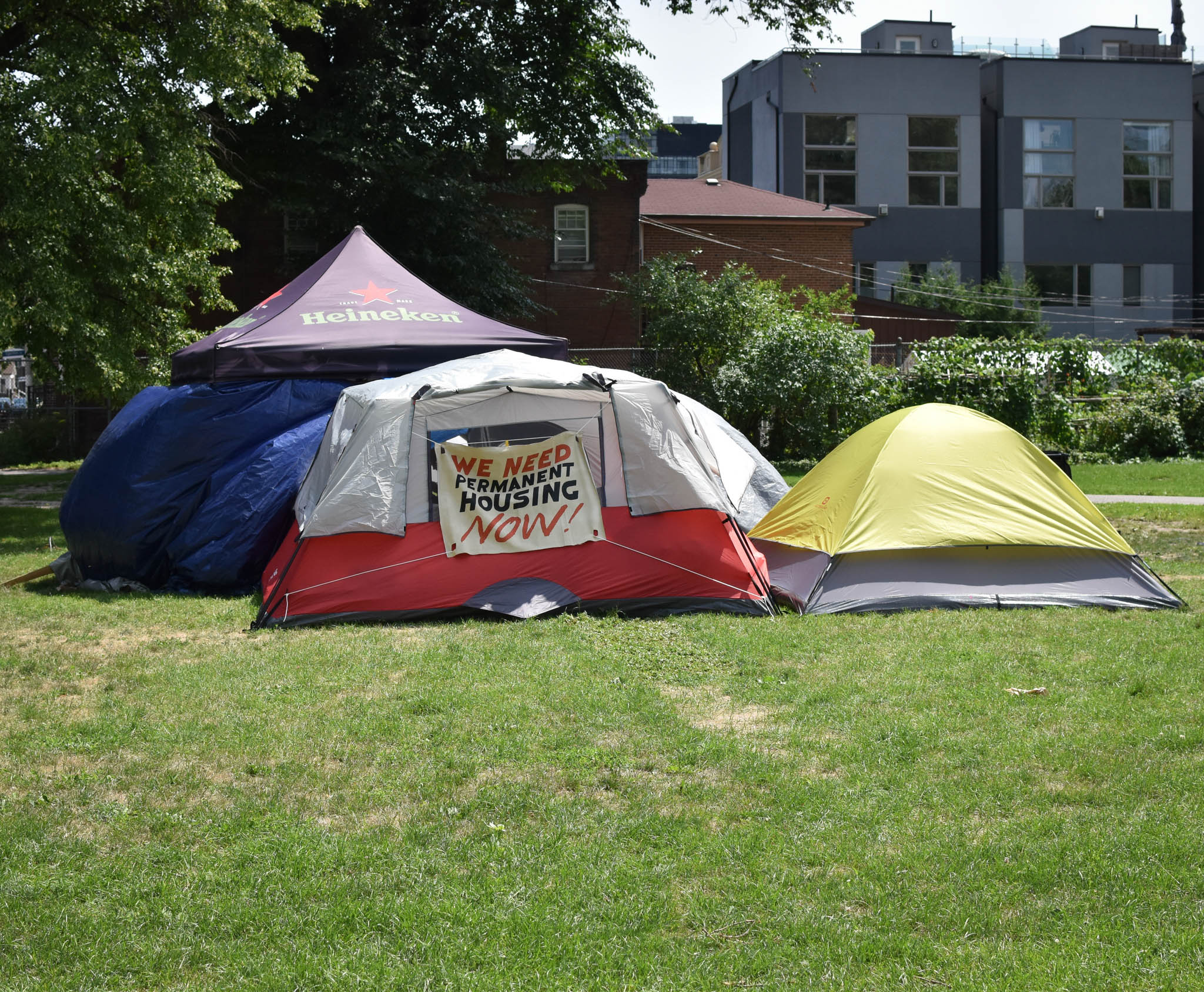Regardless of gaudy changes, poverty is increasingly visible in Kitchener. From housing instability, homelessness, rising cost of living and the visible desperation of folks trying to scrape by in the region, it is hard to ignore the manifestations of poverty in our community.
Poverty is evident in the squalid conditions of the encampments on the corner of Victoria St. N. and Weber St. W. and in Willow River Park.
Even on a stroll down the downtown core, it won’t be a surprise to see folks down on their luck panhandling in the shadows of the luxurious buildings.
The same sight can be seen at many major intersections throughout the city. Cardboard signs held by those who are down-and-out read: “down on my luck,” “anything helps” and other calls for generosity.
Though the evident poverty goes unnoticed by some in our community, many have stepped up to take creative forms of action towards assisting those who are experiencing low income and poverty.
The bottom-up method is more efficient than the slow trickle-down effect that occurs when relying on municipal and provincial coordination. For those who reside in the region and want to take pride in this community, it is tough to walk on by while seeing our neighbours suffer openly and in silence.
The reality is that poverty creates the ideal social environment for social challenges like homelessness, addiction, housing instability to prosper. As the gap widens between the haves and have-nots, it is plausible that these issues can fester.
The poverty affecting seniors, low- and middle-income earners, and those with disabilities residing in the inner suburbs and downtown core can be inconspicuous, but the reality is sobering.
In Kitchener-Waterloo, more than 10 per cent of households are living below the poverty line and almost 25 per cent are barely scraping by with less than $40,000 per year, after taxes.
The situation for newcomers is equally bleak. A recent report by the Kitchener Waterloo Community Foundation found that 45 per cent of immigrants have difficulty making ends meet.
The stagnant $15.50/hour minimum wage introduced on Oct. 1, 2022, does not coincide with KW’s living wage of $17.20. With the price of two-bedroom condos increasing by 38 per cent in just 2021 compared to 2022, even $17.50 is realistically far less than a livable wage here.
With developments occurring throughout the city such as various luxury condominiums, the LRT, the construction of office space for technology companies and new suburbs appearing around the city, the anxieties of those in Kitchener’s downtown core and inner-city suburbs is warranted.
Residents who are low income, disabled and/or seniors are consistently met with challenges ranging from gentrification and displacement, to unsafe living conditions, apathetic landlords and renovictions.
Speaking from my own experience of living in a low-income inner-city suburb my entire life, poverty usually goes unnoticed.
The destruction that poverty can wreak on one’s mind, soul and body make it potent and dangerous. The poverty that we don’t see in our community is just as demoralizing and dreary as the poverty that we do see.
Both of these are pressing issues and both will require far more effort than simply relying on the municipal or provincial government to deal with the problems that are in our own community.
Poverty in the region is vast, but as it is really up to us to take care of one another. Of course, this is easier said than done.
If we make an effort of being mindful of our surroundings it is clear as day to see minor steps that we can make towards enriching our community will pay off in the long run. Local initiatives are providing shelter to our unhoused cityfolk, various organizations are dedicated to feeding the community and supporting at-risk youth.
These exemplary forms of selflessness are effective and lead to legitimate long- and short-term solutions.
I have always believed in tackling the root of the issue and working from a grassroots position is where the real change occurs.
As for the poverty that is noticeable, even more complications such as drug addiction, homelessness and mental health issues must be considered to make sure our approach can be both fruitful and can keep the community’s well-being in mind.
It is important we confront the issue of poverty in our city as it is getting harder to ignore day by day.
Remembering the selflessness that existed during the peak of the pandemic, it seems that we turned away from values which kept us afloat during those hard times.
We should go back to ensuring that everyone has shelter at the end of the day, we should consider supporting local business before major retailers and we should just be more conscious of the rights of others.
No one can solve a major issue on their own. But if everyone does their part, regardless of how small or big it is, it will at least be a way to address the poverty in our community and hopefully lead to us supporting one another as a collective.
It isn’t a simple fix, but it seems like with times getting hard across the board in Canada and the world, we should take a greater focus in worrying about our community first.




Leave a Reply